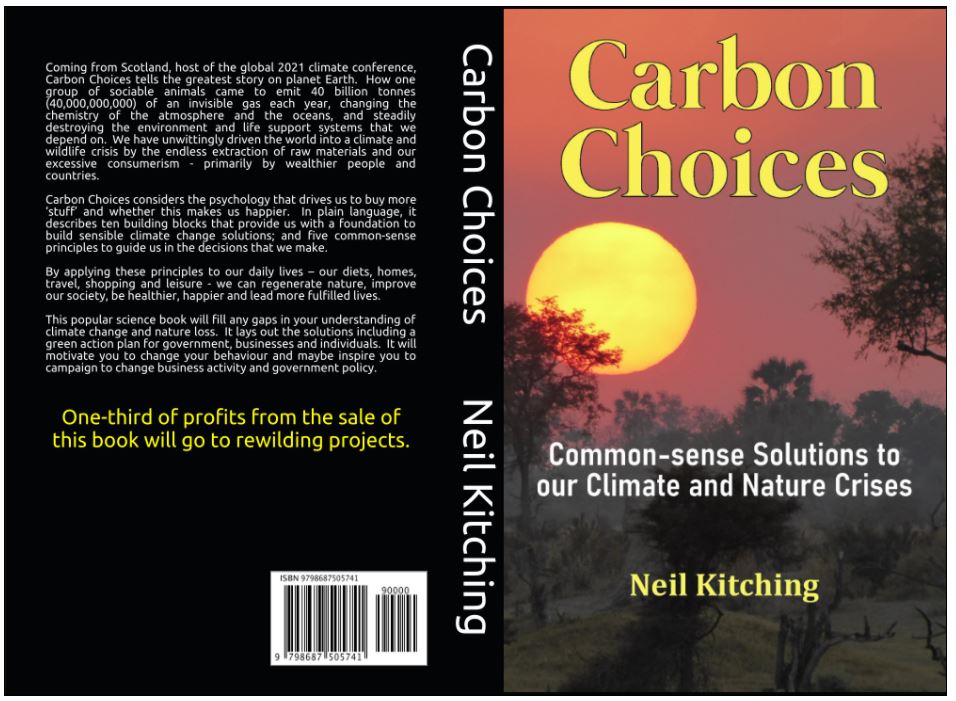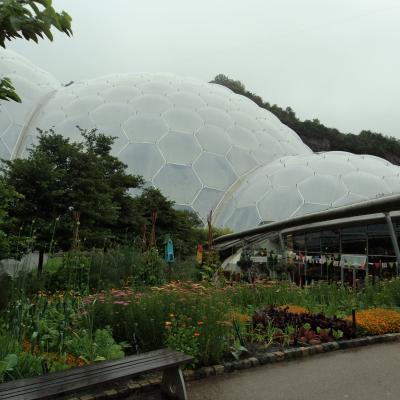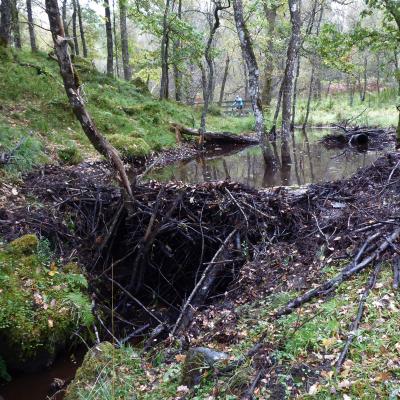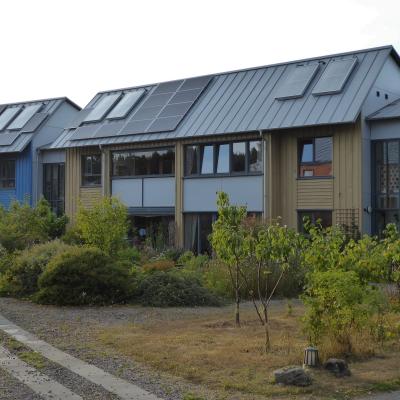Three years on from publishing Carbon Choices, what has changed? Would I write the same again? What is next? Another book?
I wrote Carbon Choices during the Covid-19 pandemic. I felt inspired, almost compelled, to help to change our world. I had known for years that we were heading towards societal and ecological catastrophe and was frustrated that so few people seemed to know or care or act. If only they really understood what was happening, then they would campaign to change everything for the better. At least that was my belief. Now I am not so sure.
Climate Change
Carbon Choices has a chapter that summarises the impacts of climate change. Re-reading it today, it hasn’t really dated. I did say climate change was potentially “disastrous,” and that many of its effects will be “irreversible.” I underestimated impacts such as the increase in extent and ferocity of forest fires; whilst the impact on cloud cover is new research that might result in more extreme climate change.
What people haven’t really got their heads around is that a 2oC rise in temperature doesn’t sound much but it will result in a shift in climatic zones. Human society, and crucially agriculture, developed within stable climate zones. Any shift will be disruptive for our society, and even more catastrophic for nature which has little space to migrate to.
Some Progress…….
There is some good news. The roll-out of solar energy has been faster than predicted and innovation continues to result in cheaper, lighter, and more efficient solar panels. Similarly, electric vehicles have reached a tipping point in some countries and will soon become the dominant form of transport, at least, in developed countries. As always, this is due to a combination of innovation, multiple supportive regulations, taxes, and subsidies.
Aviation
Re-reading my chapter on aviation, I was a bit muddled in my solutions. There is still no technology available to eradicate the environmental impact of aviation. I am sceptical of the progress being made on electric planes, as I think these will spawn new short-distance commuter and tourist sight-seeing markets, rather than displace any existing markets.
What we need is an immediate mandate on the aviation industry to use an increasing proportion of ‘sustainable aviation fuel’ in every flight. This mandate needs to increase each year. This will be expensive to achieve but innovation and economies of scale will reduce this cost. In addition, the Government should levy a substantial carbon tax on every flight with the money raised used to research and deploy projects to bury carbon dioxide underground – a permanent storage reservoir. Airlines also need incentives to fly their aeroplanes at an altitude that will avoid making contrails as far as possible.
Heating
In the UK, glacially slow progress continues in the shift to new low carbon heating systems for our homes. The solutions exist. Large-scale district heating systems in dense urban areas (like Copenhagen), individual air sourced heat pumps in the suburbs and for isolated rural properties; and small-scale communal ground sourced heat pumps for villages and some areas of our cities. All of these are capital intensive to build and are undermined by the low running cost of burning gas. We need to bring the capital costs down. This can be achieved by the usual mechanisms of innovation and economies of scale. Adopt a street-by-street approach, offering each household a new heating system at the same time. This will require planning, organisation, community engagement and deployment – is this too difficult for us?
Is Education Enough?
My hope was that by educating people in the facts, they would all work towards solutions to our climate change impacts. I have had a lot of feedback from individuals who have read Carbon Choices. They have made changes to their lives; travel by train instead of aeroplane, eat less meat; are thinking about buying an electric car. Unfortunately, whilst good, most are too small to make much of a difference.
Education is necessary, particularly around areas of behavioural change such as improved diets. But education doesn’t seem to be enough to overcome vested and political interests.
Vested Interests
I am an advocate for more regulations to force manufacturers, retailers, and the public to change to lower their carbon impact. Regulations are fair on everybody, they encourage innovation, and they enable fast, sometimes overnight, change.
So, why don’t Governments introduce more regulations? It is because of vested industrial interests. Big corporations employ lobbyists whose job is to sow the seeds of doubt; to water down and delay any new regulation. Often their claims are backed-up by a newspaper headline, and the Government wants to be seen to be ‘listening,’ so they announce another public ‘consultation.’ The lobbyists input and/ or respond to the consultation and so the dither and delay continues. You end up with the ridiculous situation in the UK where one arm of Government provides subsidies to replace gas boilers with heat pumps, whilst another arm is consulting on a future ban on installing gas boilers in new houses. In the meantime, housebuilders continue to install thousands of new gas boilers every year.
The Underlying Causes?
The underlaying causes of human induced climate change are the constant desire to grow our economies and to consume more goods and services. All of this requires ever more energy and more raw materials, whether it is minerals or agricultural products. Resource efficiency helps, but population growth and increased consumption offset any gains.
So, is capitalism the problem? Perhaps not, as all political regimes advocate growth. It is excess consumption that is the problem, and few economists are advocating new models to address that. There is some talk of ‘degrowth’ and ‘community economics’ but I don’t see any mass appeal to this from the public.
The Way Forward
I do feel that Carbon Choices hasn’t really aged. I could update a few case studies, but its underlying message is still as valid today. I feel that educating everybody is still a worthy aim but isn’t sufficient on its own. So, I will keep writing blogs, and write another book on the solutions to climate change when I retire.
We need guts. We need to tackle vested interests head on – their scare stories rarely come to light. We need innovation, regulation and to ‘sell’ a vision of a better future to the public.
So, rather than (or in addition to) make a minor change to your lifestyle, you could create a bigger impact by influencing your local politicians, writing to businesses, and proposing and responding to Government consultations on faster, smarter regulations.
Perhaps, the pen is mightier than the sword?
If you like this blog, please share it with your friends and on social media.
Carbon Choices
Don’t miss my future blogs! Please email me at This email address is being protected from spambots. You need JavaScript enabled to view it. and I will send you each new blog as I publish them.
You might also enjoy my book, Carbon Choices on the common-sense solutions to our climate and nature crises. Available direct from me here. I am donating one third of profits to rewilding projects.
Follow me:
@carbonchoicesuk (twitter) @carbonchoices (Facebook) @carbonchoices (Instagram)









